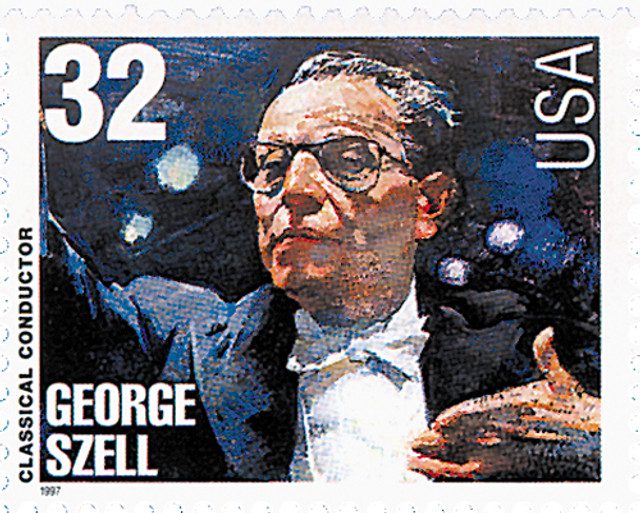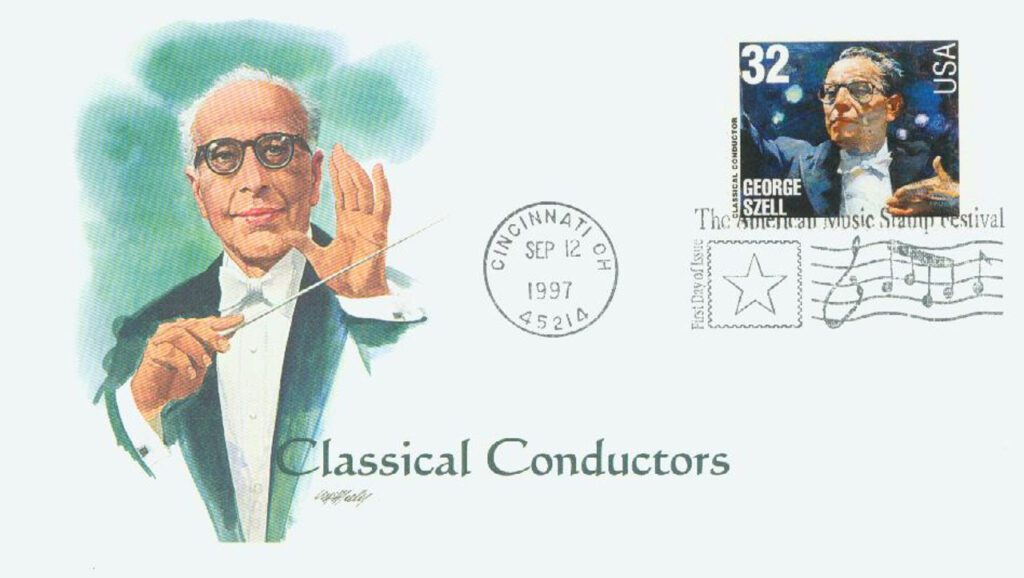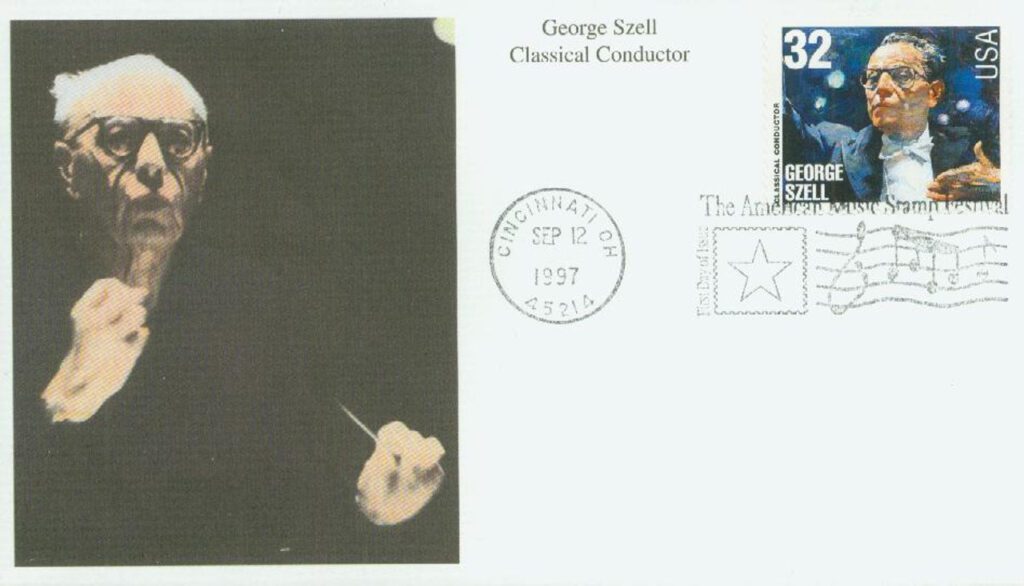Conductor George Szell was born György Endre Szél on June 7, 1897, in Budapest, Hungary. Szell conducted the Cleveland Symphony Orchestra and is credited with transforming it into one of the world’s greatest orchestras.
Szell grew up in Vienna, Austria. At age 11, he made his debut performing a piano piece he had composed. He toured Europe and was dubbed “the next Mozart” by newspaper critics. For several years, he composed and performed with different orchestras. He conducted the Berlin Philharmonic when he was 17. As much as he enjoyed composing and playing music, he recognized that he would have a more lucrative career as a conductor. He also liked the artistic control he’d have as a conductor.
While on vacation in Vienna when he was 17, Szell was asked to conduct the Vienna Symphony Orchestra when their conductor injured his arm. Szell enjoyed the experience immensely and decided to become a full-time conductor. The following year, he was appointed to Berlin’s Royal Court Opera. He befriended the opera’s music director, Richard Strauss, who immediately acknowledged the young conductor’s talent. He was particularly impressed with how Szell conducted his music, and had once said that he would die happy knowing that Szell conducted his music with such perfection. Szell also conducted the first half of the Don Juan world premiere recording.
Throughout his early career, Szell conducted orchestras and operas in Berlin, Strasbourg, Prague, Darmstadt, and Düsseldorf. Returning from an Australian tour in 1939, Szell stopped in the US and decided to stay. He spent six years teaching composition and music theory at the Mannes College of Music in Manhattan. In January 1946, Szell was selected to direct and conduct the Cleveland Orchestra. Szell remarked, “A new leaf will be turned over with a bang!” and vowed that Cleveland’s orchestra would be held in high regard alongside those of New York, Boston, and Philadelphia.
Szell demanded precision and clarity from the symphony, using brilliant technique to produce exceptionally powerful music. In fact, his orchestra achieved such incredible balance and clarity that many experts have compared its performances to chamber music. Unlike many of his contemporaries, who were prone to showmanship and personalized emotionalism, Szell was strict in his interpretation of the pieces he performed. He closely followed the composer’s intentions in an exacting, classical manner. Once, when criticized for a reserved performance of Mozart, Szell replied, “I cannot pour chocolate sauce over asparagus.” Although he played relatively little contemporary music, Szell did champion the compositions of Bartók, Janácek, and Walton.
Szell pushed for the orchestra to get an outdoor venue and led the musicians in performances before Cleveland Indians baseball games. He also took the orchestra on its first European tour in 1957, which helped it to earn worldwide praise. Szell requested acoustic renovations to the orchestra hall, and the completed stage became known as “the Szell Shell.”
Szell’s health began to decline and he died from bone-marrow cancer on July 30, 1970.
Click here to listen to recordings conducted by Szell.
| FREE printable This Day in History album pages Download a PDF of today’s article. Get a binder or other supplies to create your This Day in History album. |
Discover what else happened on This Day in History.



